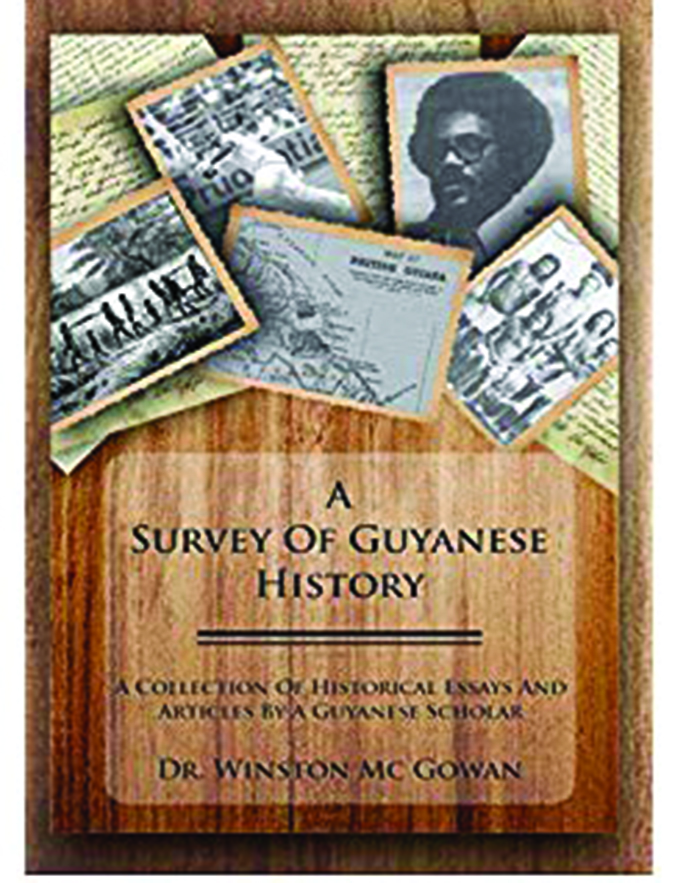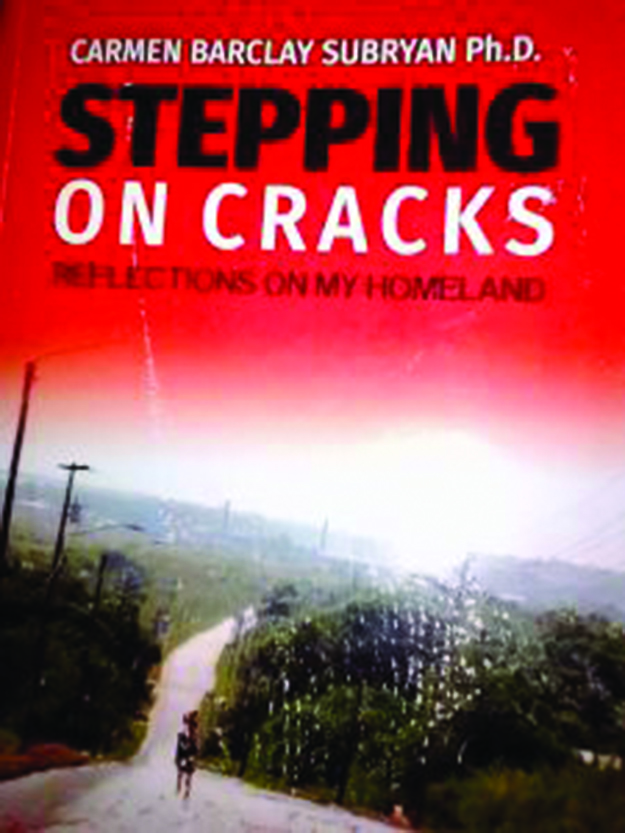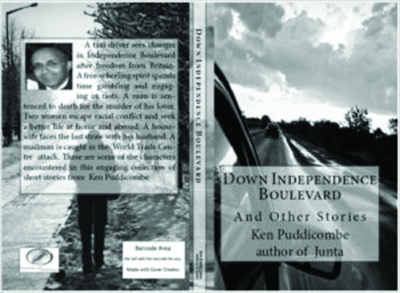by Petamber Persaud
We, lovers of literature, can say goodbye to 2018 with satisfaction, knowing that some of the books published during that year will follow us into 2019 while others will stay, will not leave us, during 2019 and decades beyond, such is this remarkable gift to man.
From its inception, the book was treated with respect, even with awe, for man valued the book very highly with regards to its potential as a tool of education and instruction, as a repository for storage and retrieval of information, as a custodian of traditions and languages, as a forum for art and entertainment, stimulating the imagination and improving memory, a source of inspiration, among other benefits. And the book has lived up to expectations even in its new forms and formats.
Below are books crossing my desk during 2018*.
(Books we looked at in part one included Aftermath of Empire: The Novels of Roy A. K. Heath by Ameena Gafoor, UWI Press, 2017; Red Hibiscus by Scott Ting-A-Kee, Way Wive Wordz Publishing, UK, 2018; Edgar Mittelholzer: Creole Chips and Other Writings ed. Juanita Cox, Peepal Tree Press, 2018; A Little Poet’s World by Aurelius Sue-Ann, 2018.)
Defeating Domestic Violence in the Americas: Men’s Work by Luke Daniels, Hansib Publications, 2017
Riding high on top of choppy waves he pebbled into play with his first book, Pulling the Punches: Defeating Domestic Violence, Luke Daniels now creates a tsunami with his new book, Defeating Domestic Violence in the Americas: Men’s Work by contending that domestic violence is ‘politically motivated violence in support of patriarchy’, pointing out that the social structure is designed whereby mainly men are put in charge of state apparatus and mainly men becoming policy makers, holders of high offices, heading other organisations like military, political, religious, social, endowing them with wealth and power exercising control, sometimes absolute control. Daniels also shows how this pandemic of violence thrives in a climate of inequality, machismo, and lack of respect fuel by the socialisation for violence in the movies, violent video games and in sports like boxing.
Although this book focuses on the Americas (referring to the Caribbean, Central, South and North America), the ground rules are the same for any society in which domestic violence is allowed to prevail and fester.
This book may not win a popularity contest but it will be one of the books that will make a difference to our world.
A Survey of Guyanese History by Dr. Winston McGowan, Guyenterprise, 2018
The book runs into almost 500 pages, perhaps significant of the number of years since Columbus sojourned in this part of the New World that we are writing our own history. The number of pages matters to both the reader and the writer. For the reader, it may take quite a few sittings to weed through a few sections of the text. But for the writer, it had taken a number of years to put together; in fact, A Survey of Guyanese History, constitutes a life’s work, a man’s life’s work which ought to be afforded due regards and full respect in order to fulfil the expectation of the author that ‘this collection of essays will be of benefit not only to the general public, but also especially to teachers and students of Guyanese and Caribbean History. If that hope is realised, the collection will be a useful addition to the existing body of knowledge on this subject’. That number of pages is divided into eleven sections which are further subdivided into short essays and long papers of which many are ‘original works, many in areas previously unattended’ (James Rose), all designed for easier access, comprehension and appreciation, intent on the sharing of knowledge.
Stepping on Cracks: Reflections on my Homeland by Carmen Barclay Subryan, Demerara Press, USA, 2018
In her eighth book, Carmen Barclay Subryan has pushed the boundaries of her writing to another level after safely (writing about what she knows) and successfully canvassing through the genre of historical fiction mainly with her trilogy – Black- Water Woman, Black- Water People and Black- Water Children wherein she reconstructed the birth, boom and travails of the bauxite mining township of Linden, a history that is intricately interwoven with the history of her family, the Allicock family, by now trying her hand at auto fiction, sticking her nose in local socio-political issues and sticking her neck out by offering suggestions on fixing the fractured system.
That this is a work of auto fiction is confirmed in the foreword written by Juliet Emmanuel ‘Life? Are there any answers to the cobbled together incidents that compose it? Is this the ultimate fiction?’ and in the prologue by the author as she employs her alter ego, Doreen, to tell the story.
In her new book, Stepping on Cracks: Reflections on my Homeland, Subryan confesses she wanted to prove Thomas Wolfe wrong in that she could go back home again but discovers after an explorative five plus months in the land of her birth, she could not go back home while rediscovering that her real home was where the heart is, in Maryland, USA.
Journey Back to Watooka: A Story of Guyana by Steve Connolly, FriesenPress, 2018
Any book that immortalizes a tiny settlement in a little known country way down in Demerara, South America, placing it on the world map in no uncertain manner, juxtaposing individuals and events to world status, is worth owning and been placed alongside other significant books in private and public libraries.
Journey Back to Watooka is such a book, swamped with stories of ordinary men and women doing extraordinary deeds. Journey Back to Watooka is filled with stories of events occurring in that faraway place that made significant contributions to the world and the effects of some of those events and the works of some of those men and women are still been felt today.
Journey Back to Watooka follows admirably in the wake of the first book and first travelogue on Guyana, Discovery of Guiana by Sir Walter Raleigh (1596) and a contemporary travelogue, The Sly Company of People Who Care by Rahul Bhattacharya (2011).
An avid reader will find that Journey Back to Watooka is also about books and writers – the author’s way of setting homework for further reading, a masterstroke!
Down Independence Boulevard by Ken Puddicombe, MiddleRoad Publishers, 2017
The book Down Independence Boulevard and Other Stories is an important addition to the country’s literature because it focuses mainly on the push/pull factors fashioning internal migration with some attention paid to the pull/push factors of external migration and the disillusionment of returning home, all fascinatingly rendered in sixteen linked stories set in Guyana and North America but mainly in Guyana, during the ugly 1960s, from where all the main characters originate, some firstly migrating to safer locations in order to escape from racial animosity, racial discrimination and racial conflagration while others who are unable to deal with those curses, end up in the Diaspora to face similar curses in different guises, forcing at least one man to return to his birthplace where he has invested new monies (in a new building) to make a new start but is disillusioned on discovering he is deceived and cheated out of his investment and dream by a sister (and her husband) whose action is influenced by a society darkened by despotism and corruption.
*Some of the above Guyanese-authored books were published before 2018 but only now reaching my desk.
Manuscripts not included.
(To be continued)
What’s Happening:
Just coming to my desk – Ian McDonald: New and Collected Poems, PTP, UK, 2018.
Responses to this author please telephone 226-0065 of email: oraltradition2002@yahoo.com
(Guyana Times Sunday Magazine)








